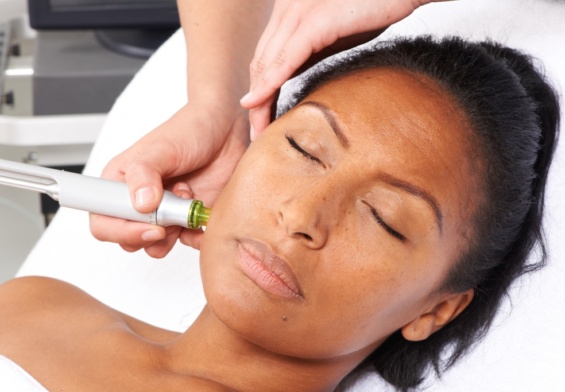By Rachael Bough, head of buying at The Fragrance Shop.
Here are the top ten fragrance mistakes you probably didn’t even realise you were doing wrong.
1. You rub your wrists together after spritzing
Although an excellent pulse point to spray perfume on, rub your wrists together after you spray creates friction and generates heat, which breaks down the fragrance’s delicate notes and makes it develop in a way that was not intended. When you spray a fragrance, the top and middle notes should appear (and disappear) first, while the base notes will last the longest. Don’t damage the fragrance profile by slamming your wrists together. Just spritz and let it settle.
2. You only spray perfume on your wrists
When applying perfume, you should layer it and spray on various pulse points. Fragrance is activated by heat, and different parts of the body warm up at different times, meaning your scent will be regenerated throughout the day. As a general rule of thumb, apply on pulse points: below earlobes, inside elbows, back of knees, ankles, base of neck, inside wrists. Other good places to apply are on the chest, on shoulders, and back of the neck at the hairline. Spray about 20cm away from your skin as an even spray over a wider area will help your fragrance last longer than a generous amount in a small area.
3. You overdo it
It’s very easy to get trigger-happy with your favourite fragrance and spray it continuously all over. But one short spritz per pulse point is all you need as you don’t want to overpower passers-by. Also, if you’re using a cologne or EDP you can spray on less than you would when wearing an EDT or body mist. This is because an EDP typically contains 15-30% and can last up to 8-10 hours, compared to an EDT which typically contains around 8-15% fragrance oil and lasts around 4-6 hours.
4. You layer your products haphazardly
Sometimes our fragrance can get lost amongst the other scents of our other body products. This includes deodorant, body cream, body wash face oil, etc, these are all competing with your perfume to step into the fragrance spotlight. If you want your scent to stand out, use odourless or fragrance-free deodorants and body products.
5. You apply perfume on dry skin
The oils in our skin actually help a fragrance last longer, this is because the oils dissolve and retain scent molecules. Therefore, the oilier your skin, the more intense a fragrance will be and the longer it will last. The best time to spray perfume is actually straight after coming out of the shower. This is because the moisture gives your scent something to hold on to.
But if you have dry skin, you’ll need to add something to act as a barrier between your skin and your fragrance, such as a Vaseline on your pulse points, a fragrance-free body lotion, or a matching moisturiser to your perfume that can double the life of your liquid fragrance on dry skin.

6. You store your perfume incorrectly
Heat, light and humidity can all affect your perfume. Your fragrances may look pretty on your vanity or bathroom shelf, but to preserve them, store them in a cool dark place away from heat and direct sunlight. If a fragrance gets hot and cold a lot, it causes it to ‘sweat’ and condensation can get into the fragrance which can ruin it.
7. You test a fragrance on a blotter and not on your skin
Whilst a blotter can be an excellent indication of fragrance notes, it’s not going to show you how a fragrance works on your skin. To be sure a fragrance is the right one for you, you need to test it on your skin and then leave it on for a few hours to see how it develops.
8. You don’t pay attention to your skin type
Oily skins hold fragrance differently to dry skin types. Skin oils seem to enhance notes and boost lighter notes, whilst sweet notes can almost turn sugary. Fresh citrus notes on oilier skin types really pop and are long-lasting. Heavy fragrance notes such as oud are beautiful on dry skin types, deep base notes sit without becoming overbearing.
9. You don’t factor in your skin’s PH level
Your PH level and body chemistry are also believed to affect the way your perfume smells on you in comparison to another person. Your PH level can be affected by what you use when showering and even the warmth of your skin can make a scent deeper.
10. You don’t consider the season
Perfume is very sensitive to climates and in colder temperatures, the evaporation rate slows down, so top and heart notes last much longer and you might find that your scent doesn’t project as much in the winter. This is because the perfume molecules move at a much slower pace in cool air.
As well as this, our bodies change to be less hospitable. Our skin tends to become dryer in the cold which can make it difficult for scent to ‘stick’ as scent molecules are attracted to oils. Receptors in our nose instinctively bury themselves deeper in protection from the cold, which can mildly suppress our sense of smell.
About the expert
Rachael Bough is the head of buying at The Fragrance Shop.


